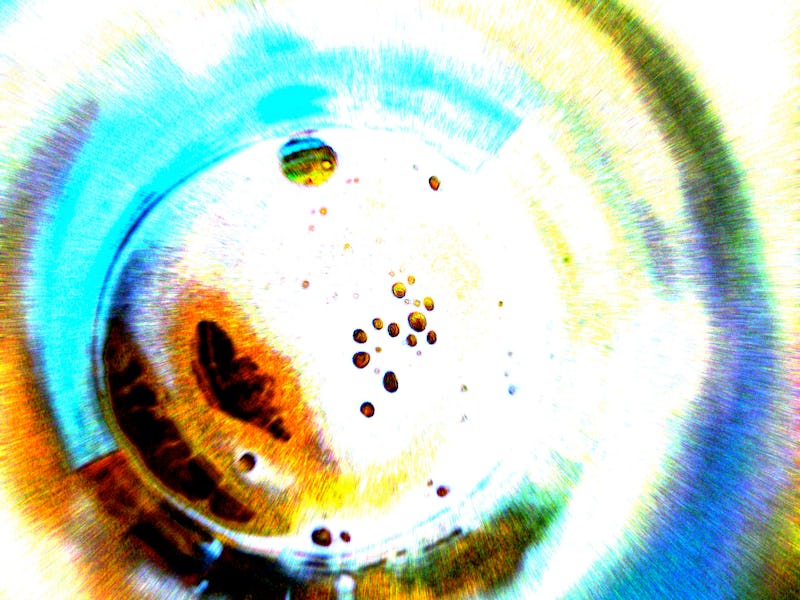4 Ways Climate Change Makes Beer Taste Worse and Cost More
If this doesn't get people upset about climate change, nothing will.

Climate change is already impacting the planet in lots of terrible ways, and the worst is yet to come. Still, some people have a hard time summoning the energy to give a shit. Well, here’s the news that’s gonna get them off their asses: Climate change is ruining beer.
As it turns out, a warming planet is waging a multi-front war on the ingredients and processes that make delicious beer possible. Here’s how:
No Good Water
You can’t make good beer if you don’t start with good water. The West Coast’s ongoing drought has breweries nervous that they will be forced to switch from surface water to underground sources, which can impact taste. “It would be like brewing with Alka-Seltzer,” Jeremy Marshall, head brewer at Lagunitas Brewing Company in California, told NPR. The company was concerned that the county might force brewing operations to stop drawing water from the Russian River, and switch to mineral-heavy well water instead.
Scarcity of fresh water is a major problem around the world. The World Economic Forum has named water crises the most significant source of global risk. Which is understandable; we all know what happens when you try to take the beer from the people.
Men march for the right to beer in prohibition-era America.
Wrong Brewing Temperature
Artisanal brewers in Belgium are at risk of extinction because of warm autumn temperatures that reduce the season available for brewing in open air vats, the old fashioned way. They’re literally pouring beer down the drain because the weather isn’t getting cold fast enough and staying cold long enough to allow for the sensitive fermentation process to occur. The traditional brewing process allows the brew to cool off outside so it will pick up natural yeasts from the environment. But it only works if the temperatures are right, ideally between 26-46 degrees Fahrenheit.
Fifty years ago, the brewing season lasted from mid-October through May, Jean Van Roy, head of the Cantillon craft brewery in Brussels, told Agence France-Presse. Now the season runs November to March, and temperatures frequently spike back into the no-go zone. “We only have five months to brew and our production is very limited. If we lose a week we can survive but three weeks or more would be more complicated,” he said.
Not Enough Barley
Barley, a key crop for brewing beer, has been impacted significantly by climate change. A 2006 heat wave in Europe saw yields drop by a quarter, and prices rise by 40 percent. That’s bad news for Germany, in particular, since laws there dictate that breweries are not allowed to substitute any other grain for barley in beer recipes.
No barley, no beer.
Ironically, the fight against climate change is hurting barley production, too. Government regulation and incentives are pushing farmers towards biofuel crops like rapeseed, forcing a transition in land use away from barley.
Not Enough Hops
Hops, a flavoring ingredient in the vast majority of beers, is particularly susceptible to climate change. “Even with the modest warming so far experienced yields have stagnated and quality declined,” wrote the authors of a scientific study on the impact of climate change on hop production in the Czech Republic.
Most American hops are cultivated in Washington’s Yakima Valley, where warmer temperatures and drought conditions threaten crop yields. The Climate Impact Group predicts that there will be water shortages in Washington State more years than not by the 2080s.
Hops impart bitterness and flavor to beers while acting as a natural preservative.
The solution to the inevitable beer shortages is not to start hoarding — beer does eventually go bad, and no one likes to see it wasted. Instead, it would be better to try to do something to hinder climate change now. That’s a lesson that some brewing companies have taken to heart. In light of the threat that climate change poses to beer of the future, a few dozen American craft brewers have banded together to commit to reducing the environmental impacts of their operations. I’ll drink to that.